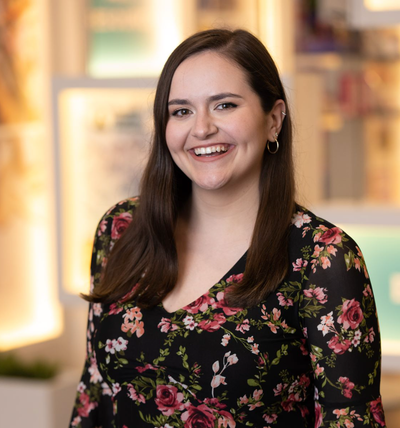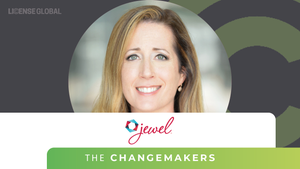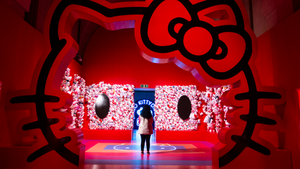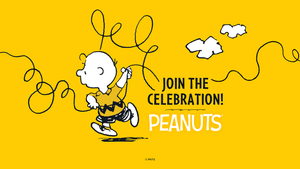The Changemakers: Saphia Maxamed
Saphia Maxamed, founder, Black Lives Matter Licensing, discusses the movement’s goal and how it came to be.
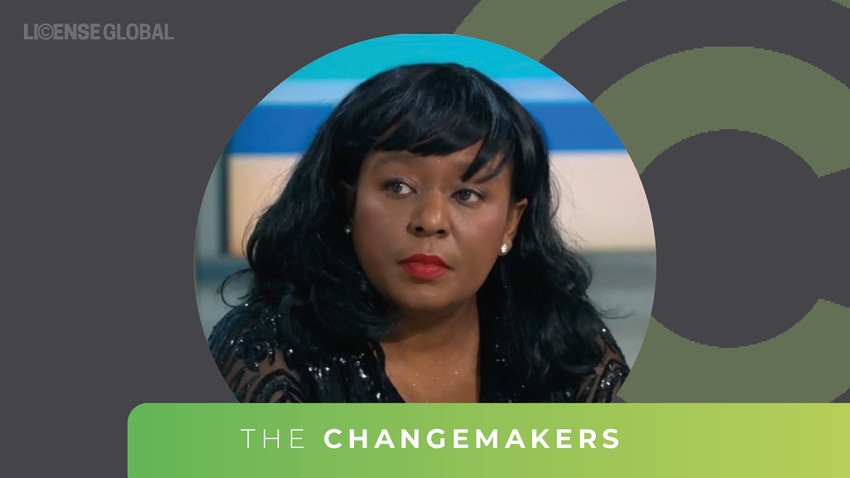
The licensing industry has global influence; consumers flock to buy the products the industry creates, and the revenue driven at retail is a substantial driver in a brand’s power to implement change. Some executives harness the power of their position to become what License Global calls a Changemaker, meaning that to create the change they want to see in the world, they are uncovering licensing’s potential as a catalyst.
To celebrate the initiatives and individuals behind change, License Global explores how the licensing industry impacts sustainability, diversity and inclusion through a monthly insight column called, “Changemakers.”
For our February segment, License Global is honoring Black History Month with an interview with Saphia Maxamed, founder, Black Lives Matter Licensing. Maxamed hopes to use the Black Lives Matter name to change the licensing industry in a way that helps the Black community grow economically and heal from the tribulations they have faced. We discuss how the movement started, what it has done already and where it’s hoping to go.
License Global: You decided to take the Black Lives Matter movement and move it to the licensing space. How did this happen, and what inspired you to want to do this?
Saphia Maxamed: Unfortunately, this wasn’t inspirational. It was a necessity, and it was my duty. Let me take you back to 2020, the year that changed everything as we knew it in three generations. I am thinking about my parents’ generation, my generation and my son’s generation. COVID came, then the tragic death of George Floyd that we all witnessed on our social media, then the global Black Lives Matter Movement marches before the mainstream media caught up, became a year of reckoning. This was personal to me. As a Black woman, sitting in the lockdown with my all-young, Black team at the time, who were looking at me for leadership and I had absolutely no answer to give them about what was happening right in front of our eyes. In the U.K., we had strict lockdown rules due to COVID-19, but that did not stop my team from joining the march. It was then I realized I had the answer: it is my duty to do this. I have been working in licensing since 2009, in every part of the licensing industry, from tech, retail to licensee, Licensing International (formerly LIMA) and licensing agent. It became my responsibility and my duty to bring change in the industry. I knew this was something I could do, and I needed to lead on. You could count Black people in the licensing industry on one hand at that time. Through all the emotions, I called my industry friend and colleague, Samantha Loveday and spoke to her emotionally for an hour. I told her, “I know the power of our industry, and I know if we came together on this, we can make the change now.” She took our conversation and put it in an article for the industry. Within minutes of that article, I received overwhelming emails, DMs, calls and texts from around the world with industry colleagues asking how they could help, how they could get a license from me and that’s how the Black Lives Matter Licensing Movement was born. I took that responsibility and started to put the team together. We gained the trademark, and here we are.
What is the goal of Black Lives Matter Licensing?
To be the voice of change. We are no longer apologizing for being the changemakers. We will continue to work until change is no longer a subject matter because change is inevitable. We are making a lot of progress. We don’t have to shout anymore; we know the movement is bigger than us, and our goals will evolve over time. Licensing is still our primary goal, but we have found ourselves being the consultants to both licensors and licensees. Partnering with BLE also gives us new goals to shape how the industry can join the movement.
How does Black Lives Matter fit into the licensing space, and why is it important to the
overall ecosystem of the licensed consumer product business?
The licensing industry is the pioneer of the consumer product business, so the movement fits in with that. If you think about it, in simple terms, consumers connect with the brand through emotions and attachment to the brand. Having a product that links your emotions or memory is always a winning strategy for any brand. Take the LVMH x Fenty Beauty by Rihanna, for example. That license is so clever. It fits the love of the celebrity and the quality of the LVMH product line and brings authentic inclusivity and the Black community at the heart of the offering. That’s exactly how the Black Lives Matter Movement fits into the ecosystem of the licensing space. It is important that the industry understands everything has changed now, and the consumer dynamics have changed. Inclusivity is the only strategy moving forward.
What are you most proud of thus far in the history of Black Lives Matter Licensing? What have you accomplished so far?
It feels like we have done so much in a short space of time, and yet we are so far behind at the same time. Go figure! We are so proud of every single project that we have put all our efforts into. Our tonies consultation is one for the books for sure. Have you seen the Black British Tales yet? We remain incredibly humbled by our first partnership with the fashion licensee, Fashion U.K. Our collection is super cool and will never go out of fashion because it’s our culture. That’s what we do. Our BLE partnership is the most important to us. Anna, Ella and their teams have been incredible and are genuinely driving the movement forward with us. The fashion show at BLE was amazing. The metaverse project has also been eye-opening for us, and we continue to thrive.
Are there any upcoming launches for the brand you’d like to discuss?
We are working on an experience project that we are hoping will be ready to go in 2024/2025. This is something we think could really benefit our licensees. Details will follow soon.
What do you hope to accomplish in 2024 and beyond?
Oh gosh, so much. We have something in the pipeline that could be a game-changer. At the moment, we are still in negotiations. However, we will need sponsors. We will update the industry in due course. We also are looking at direct-to-consumer solutions and more collaborations on some of our licenses, so this is our focus for now.
What do you want the industry to know about Black Lives Matter Licensing?
I really want to be that voice that informs industry folks, licensors, licensees and retailers who have not yet considered working with us. We have evolved so much since we started. We have been consulting and working in traditional licensing models just to ensure we are not leaving anyone behind. The lessons we have learned from consulting is that the industry is keen to jump in and get more Black faces in the industry, which is great, but also, they need education. A lack of experience is a major setback. As we know, our industry is very specific. That is why our expertise and guidance are really useful and should be recognized as such. None of these changes would have been apparent without the movement; therefore, it is important for everyone to recognize the movement’s influence. Join us, ask how you can be involved or learn from us. How can we help you integrate the movement with any of your properties, products or services you offer?
We are fully aware that the industry needs education, but equally, we have done talking, we are actioning our strategy and we are doing great.
Our partner’s BLE team has been incredible. Most of our work has been seen at the show. We were very happy to showcase our recent consulting partnerships with tonies. At 2023’s BLE, we ran workshops and shared case studies of these partnerships that were a direct result of our presence at the show. We spent two years in both case studies, shaping the strategy of the projects in deep detail every step of the way. Our partners were happy to share their learnings and their deep appreciation of having us onboard to guide them. More importantly, with the tonies project, in particular, the project resulted in the employment and other opportunities of so many Black talents who are now benefiting from the audio part of the project. These partnerships are truly authentic, inclusive and the product is now accessible to most consumers. Our consultation fees supported us in our give-back to the community campaign.
For those still not reaching out, here is what you should be aware of: until retailers, in particular, wake up to the fact that the Black Lives Matter Licensing Movement has been unleashed and matured, they will always be left behind. They can play catch up, but there will come a time that will be too late for them to lead on this. The movement is linked with so much emotion, and the Black community is exhausted. The community is not asking for recognition or acknowledgment anymore. We are building our own and reaching consumers directly, and that’s the future.
About the Author(s)
You May Also Like

